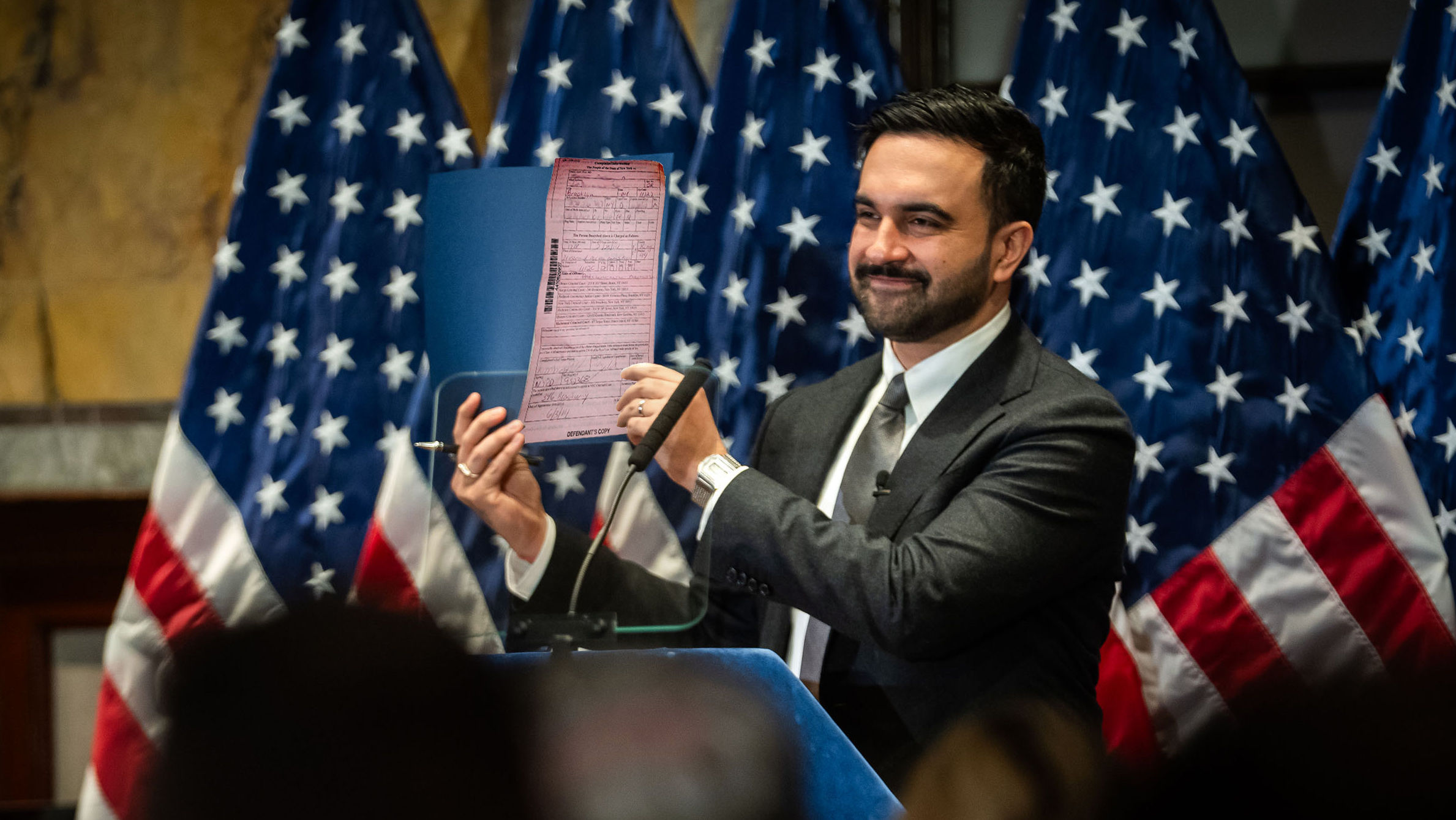Hours after the Congestion Mitigation Commission revealed that residential parking programs would be attached to its congestion pricing plan, about 70 Brooklynites gathered at Congregation Beth Elohim in Park Slope last night to talk about RPP. The event was the third DOT/EDC neighborhood parking workshop held this week, following others in Long Island City and Forest Hills. This round of workshops focused tightly on RPP compared to the first round, in November, which examined parking in general.
DOT Deputy Commissioner Bruce Schaller, on hand for the evening, told me that RPP was still in the early planning stages, and that it comprised one part of DOT's broader parking management program. While development of RPP will proceed regardless of congestion pricing's ultimate fate, Schaller noted that "the commission's report gave more definition to what the timeline would be." In addition to permit fees and eligibility requirements, the big issues that need to be hammered out, he said, include defining the boundaries of permit zones, drawing up a process for establishing new zones, and determining how to administer the details of issuing permits and enforcing the rules.
Workshop participants sat at tables in groups of eight while DOT staffers led the exercises. First the DOT reps presented data gathered from observations of the study area, which included the northern blocks of Park Slope and most of Prospect Heights. A few numbers that jumped out:
- The vacancy rate of residential (non-metered) parking spots never exceeded five percent
- Among parked vehicles observed at 2:00 p.m., 41 percent were registered outside Brooklyn and 29 percent were registered outside New York City
- Among vehicles that parked overnight, 35 percent were registered outside Brooklyn and 27 percent were registered outside New York City (the numbers may be a little exaggerated, since they don't measure newcomers accurately)
In the main exercise, participants were presented with four RPP program options. Each option applied different rules to four categories of parkers:
- Local residents
- Non-residents who work in the neighborhood -- "local employees"
- All-day parkers -- park-and-ride commuters, relatives in town for the holidays
- Short-term visitors -- shoppers, people going to the dentist
The options were intentionally left somewhat open by DOT, since the details are still flexible. Here's the rundown:
Option A:
- Permit required to park in non-metered spots during the hours RPP restrictions are in effect (could be anywhere from 8-24 hours)
- Residents and local employees issued annual permits that cost $75-$125
- All-day parkers and short-term visitors not eligible for a permit
Option B:
- Similar to Option A but with one big difference: RPP would only be in effect for 1-2 hours each day, staggered on each side of the street. This still locks out park-and-riders but would, on the face of it, give short-term parkers a reason to cruise for free spots.
Option C:
- Similar to Option A but with one really huge difference: Only residents could obtain an annual permit. Everyone else would have to buy a daily permit for $8, which could also be purchased in monthly or annual equivalents.
Option D:
- Same as Option C, but like Option B, RPP would be in effect 1-2 hours each day, staggered on each side of the street.
People were asked to evaluate the options in terms of quality of life, traffic mitigation, fostering transit use, and meeting the parking needs of the four groups. Then the questions turned toward matters of implementation and administration. In the final exercise, people outlined the ideal permit zone for their neighborhood on a map of the study area.
Whether due to the subject matter, the roundtable format, or the crowd itself, the discussion didn't provoke the same kind of passion as congestion pricing. For the most part, people seemed in favor of RPP, although one table was unanimously opposed to it. Curiously, everyone at that table owned cars but also favored congestion pricing. It was the notion of drawing boundaries around neighborhoods that bothered them about RPP.
As Schaller had hinted, boundaries may be a more critical issue to resolve than fees or eligibility. At the table where I completed the exercise, some people drew a boundary around the entire map, while others outlined no more than six blocks. Some DOT staffers who had worked the Forest Hills workshop the night before said that residents there wanted huge zones because they liked to drive to see their friends.
After the exercises ended, I spoke for a minute with Michael Nared, a resident of Starrett City who commutes to a catering hall in Harlem. He drives to Park Slope and hops on the train there. If anyone at the workshop stood to lose from RPP, it was him. But he wasn't necessarily opposed to it, or to congestion pricing for that matter. If pricing and RPP both take effect, he said he'd sell his car and take the bus to the train -- a 70-minute commute from start to finish. He wasn't angry, just anxious that the MTA won't be able to get him to work any faster than it does now. He also thought that mass transit -- or at least buses -- should be free if there's going to be a congestion charge. I asked him if he'd heard of the Kheel Plan, and he said no.





